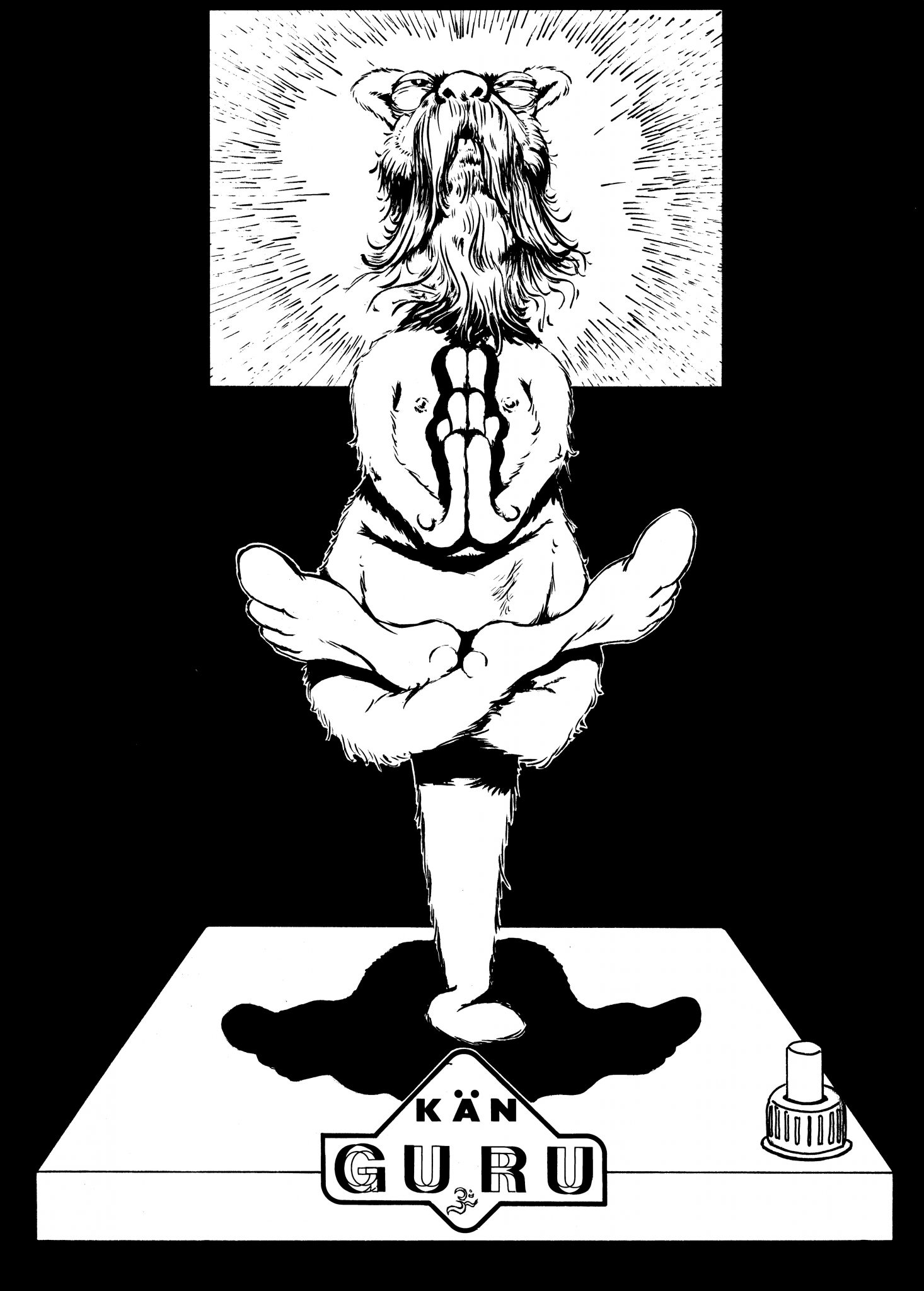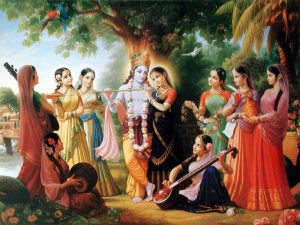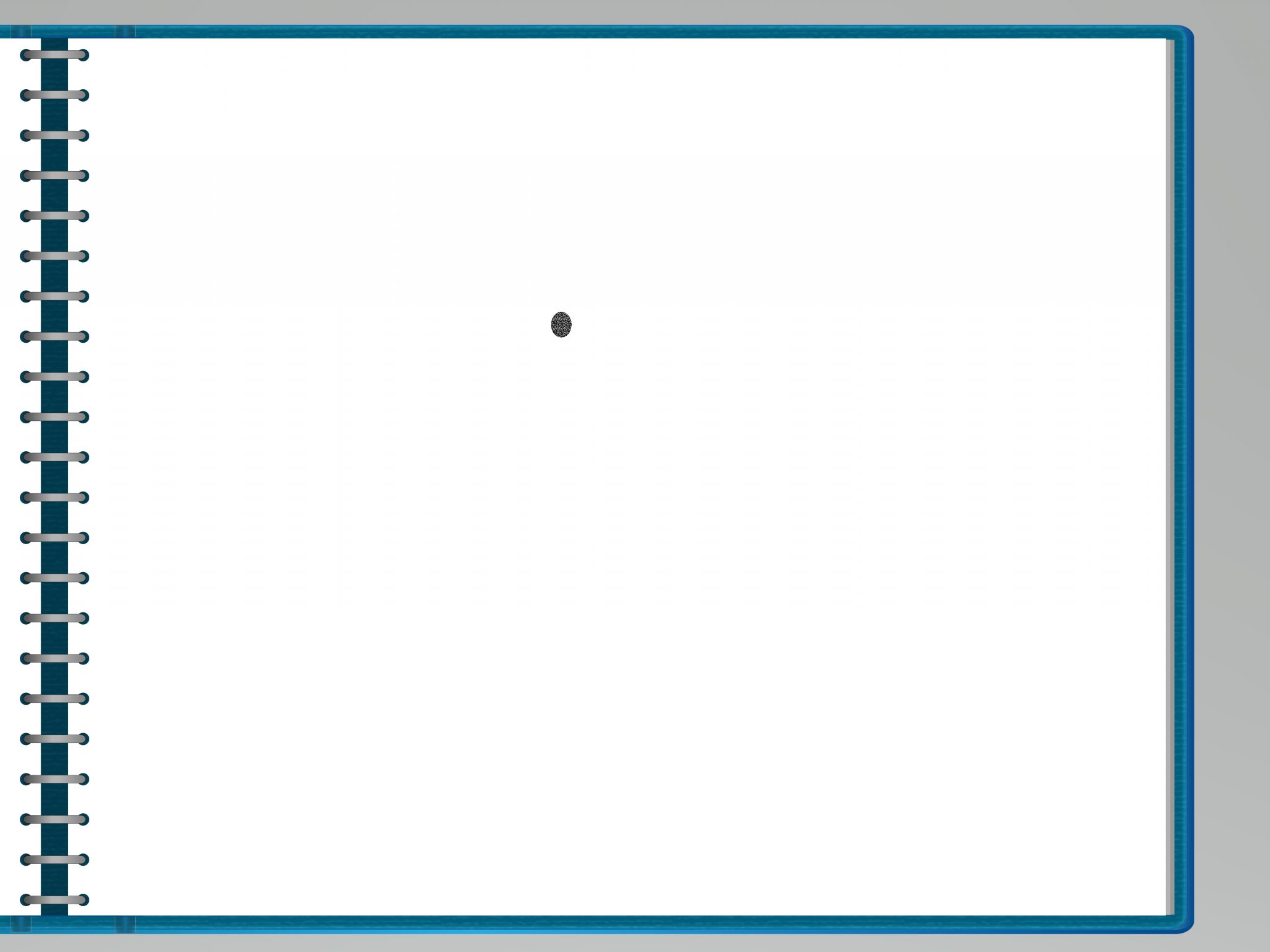

Excerpt from the book Of Love & Separation
by Śrīla Bhakti Pramoda Purī Mahārāja (page 71)
Whenever Śrīla Prabhupāda became aware of a text or discourse attacking the doctrine of pure devotion, he  would immediately call one of his scholarly disciples to write a refutation of such opposing arguments. He was like a bright and fiery sun that destroyed the darkness of misapprehension of the Lord’s doctrine and had an incomparable ability to still the tongues of his opponents. He detested those who accepted adjustment or compromise with deviant philosophies on the principle of mutual permissiveness as exemplified in the Hindi saying, tum bhī cup, ham bhī cup—“You say nothing and I’ll say nothing.” Prabhupāda was the perfect personification of the statement, nirapekṣa nā haile dharma nā jāya rakṣaṇe—“Religious principles cannot be maintained unless one is uncompromising” (CC 3.3.23). Prabhupāda never supported the idea that one could protect pure devotion while compromising with the nonsense of heterodox doctrine or the unharmonious combination of devotional sentiments (rasābhāsa). He kept a strict code of behaviour according to the instruction of Śrīmān Mahāprabhu.
would immediately call one of his scholarly disciples to write a refutation of such opposing arguments. He was like a bright and fiery sun that destroyed the darkness of misapprehension of the Lord’s doctrine and had an incomparable ability to still the tongues of his opponents. He detested those who accepted adjustment or compromise with deviant philosophies on the principle of mutual permissiveness as exemplified in the Hindi saying, tum bhī cup, ham bhī cup—“You say nothing and I’ll say nothing.” Prabhupāda was the perfect personification of the statement, nirapekṣa nā haile dharma nā jāya rakṣaṇe—“Religious principles cannot be maintained unless one is uncompromising” (CC 3.3.23). Prabhupāda never supported the idea that one could protect pure devotion while compromising with the nonsense of heterodox doctrine or the unharmonious combination of devotional sentiments (rasābhāsa). He kept a strict code of behaviour according to the instruction of Śrīmān Mahāprabhu.
asat-saṅga-tyāga, — ei vaiṣṇava-ācāra
‘strī-saṅgī’ — eka asādhu, ‘kṛṣṇābhakta’ āra
“The behaviour of the devotee is characterized by complete avoidance of bad association, i.e., that of the materialistic sense-enjoyers and the non-devotee atheists.” (CC 3.12.195)

Excerpt from a lecture given on the appearance day of Śrīla Bhakti Prajñāna Keśava Gosvāmī Mahārāja in Singapore on February 19, 2002 by Śrīla Bhaktivedanta Nārāyaṇa Mahārāja (Purebhakti.com)
Guru Mahārāja then wrote an article and published it in Gauḍīya Patrika, defeating the sahajiyā, sakhībhekī, and  other philosophies, and it created a dāvānala forest fire. I translated his writing into Hindi and published it in the Bhāgavata Patrika. The sahajiyās filed a court case against him, and I personally requested Guru Mahārāja, “This is a pressing issue. Please accept our Godbrother who is a very high-class high court advocate.” Our Guru Mahārāja accepted him as the advocate, and when he went to the court and began to present the case, all were impressed. The opponents went to the district judge and said, “We want to compromise,” but our Guru Mahārāja replied that the word compromise was not in his book. He said that they should accept that they did wrong. The judge was somewhat favourable to them, but there was no way to help them, so he begged pardon of our Gurudeva, who replied, “They should come and apologize and then I will pardon them. They should state that they will never again write as they did.” They came and apologized.
other philosophies, and it created a dāvānala forest fire. I translated his writing into Hindi and published it in the Bhāgavata Patrika. The sahajiyās filed a court case against him, and I personally requested Guru Mahārāja, “This is a pressing issue. Please accept our Godbrother who is a very high-class high court advocate.” Our Guru Mahārāja accepted him as the advocate, and when he went to the court and began to present the case, all were impressed. The opponents went to the district judge and said, “We want to compromise,” but our Guru Mahārāja replied that the word compromise was not in his book. He said that they should accept that they did wrong. The judge was somewhat favourable to them, but there was no way to help them, so he begged pardon of our Gurudeva, who replied, “They should come and apologize and then I will pardon them. They should state that they will never again write as they did.” They came and apologized.

Excerpt from a lecture given on Śrīmad-Bhāgavatam 5.6.8 in Vṛndāvana on November 30, 1976 by Śrīla Bhaktivedānta Svāmī Mahārāja (Vaniquotes.org)
So if this confidential knowledge, one who preaches without any compromise, he is the confidential servant of Kṛṣṇa. There is no compromise. This is real religion.

Excerpt from an article compiled by Mūla-Prakṛti dāsī on 8 June, 1999, selected interviews, lectures and writings by Śrīla Bhaktivedanta Nārāyaṇa Mahārāja (Purebhakti.com)
Prabhu then challenged him to discuss all these issues face-to-face in any big council. He asked me to translate his article into Hindi for publication and it was printed in both of our magazines. He also wrote it in English and sent it to the Parliament of India, addressing it to the President, Mr. Nehru and the others. Their secretary received it and said “Thank-you”, but Dr. Radhakrishnan never accepted that challenge. He had nothing to reply because all of Prabhu’s evidence had come from the Vedas, Upaṇiṣads, and from other bona-fide scriptures. In this way Abhaya Caraṇāravinda Prabhu was such a bold and powerful preacher. He never compromised.

Excerpt from the book My Śikṣā-guru and Priya-bandhu
by Śrīla Bhaktivedānta Nārāyaṇa Mahārāja (page 8)
He was a powerful speaker, and his lectures were most influential. Discussing translations from Śrīmad-Bhāgavatam by first giving word-for-word meanings, he would then present thorough explanations; and what he  spoke was beautiful. In those days there were many senior disciples of Śrīla Bhaktisiddhānta Sarasvatī Prabhupāda, such as Śrīla Śrīdhara Mahārāja, Śrīla Tīrtha Mahārāja, Śrīla Śrauti Mahārāja, Śrīla Naimi Mahārāja, Śrīla Yayavar Mahārāja, Śrīla Audalomi Mahārāja, Śrīla Vaikhānas Mahārāja, Śrīla Purī Mahārāja, Śrīla Giri Mahārāja, and Śrīla Mādhava Mahārāja. All these disciples were like tigers and thunderbolts, being well versed in siddhānta. They would often come to visit my gurudeva, and I was able to serve them. Though Abhaya Caraṇāravinda Prabhu was then a gṛhastha living outside any maṭha, he was considered by all to be extremely qualified. He was very bold and never compromised with anyone regarding the established siddhānta – never. He defeated and convinced everyone by his realized preaching.
spoke was beautiful. In those days there were many senior disciples of Śrīla Bhaktisiddhānta Sarasvatī Prabhupāda, such as Śrīla Śrīdhara Mahārāja, Śrīla Tīrtha Mahārāja, Śrīla Śrauti Mahārāja, Śrīla Naimi Mahārāja, Śrīla Yayavar Mahārāja, Śrīla Audalomi Mahārāja, Śrīla Vaikhānas Mahārāja, Śrīla Purī Mahārāja, Śrīla Giri Mahārāja, and Śrīla Mādhava Mahārāja. All these disciples were like tigers and thunderbolts, being well versed in siddhānta. They would often come to visit my gurudeva, and I was able to serve them. Though Abhaya Caraṇāravinda Prabhu was then a gṛhastha living outside any maṭha, he was considered by all to be extremely qualified. He was very bold and never compromised with anyone regarding the established siddhānta – never. He defeated and convinced everyone by his realized preaching.

Excerpt from the book Secret Truths of the Bhāgavatam (2e edition)
by Śrīla Bhaktivedānta Nārāyaṇa Mahārāja (page 27)
Some other Purāṇas discuss worship of materialistic gurus and relatives. They state, for example, that a wife should worship her husband even if he is not a devotee. But Śrīmad-Bhāgavatam never cheats us in any way. It directly states:
gurur na sa syāt sva-jano na sa syāt
pitā na sa syāj jananī na sā syāt
daivaṁ na tat syān na patiś ca sa syān
na mocayed yaḥ samupeta-mṛtyum
Śrīmad-Bhāgavatam (5.5.18)
One who cannot deliver his dependents from the path of repeated birth and death should never become a spiritual master, a father, a husband, a mother, or a worshipable demigod.
What is the meaning of na sa syāt (one should not)? If a guru is not really a guru, if he cannot give love and affection for Kṛṣṇa, you should reject him. Such a guru may think, “All these disciples are my property, and I will enjoy their property. They have no connection with Kṛṣṇa. Their connection is only with me.” That guru is a  wretched guru, not a real guru. He should at once be rejected, just as Bāli Mahārāja rejected his guru. There are so many examples of this in śāstra.
wretched guru, not a real guru. He should at once be rejected, just as Bāli Mahārāja rejected his guru. There are so many examples of this in śāstra.
A husband is not a husband if he is not actually helping his wife in Kṛṣṇa consciousness; that wife should reject such a husband. If a wife is not helping her husband in Kṛṣṇa consciousness, or if a husband is not helping his wife in Kṛṣṇa consciousness, they should be at once rejected. If a son is not helping his father in Kṛṣṇa consciousness, then he is to be rejected as a son; there should be no relationship. If others help us in Kṛṣṇa consciousness, then they are guru, husband, wife, daughter, son, father, or friend. Otherwise you should reject* them. This must be the root of all relationships. If you consider some compromise in this regard, you will be deprived of Kṛṣṇa. This has all been clearly explained in Śrīmad-Bhāgavatam. The gopīs are the most superior devotees in the world, and all of them disregarded their husbands. Śrīmad-Bhāgavatam explains all these truths. It never says anything to cheat us.
*[Śrīla Bhaktivedānta Nārāyaṇa Gosvāmī Mahārāja has explained that ‘reject’ means to not give your heart to one who is not a devotee. It does not mean to abandon one’s duty to one’s family members. But if someone is actively opposing one’s endeavours in bhakti and obstructing one’s practices, that person can be rejected.]

Excerpt from the book Walking with a Saint – 2010
by Śrīla Bhaktivedānta Nārāyaṇa Mahārāja (page 319)
Devotee: When a devotee goes out to preach, how should his behaviour be?
Śrīla Nārāyaṇa Gosvāmī Mahārāja: Very pure. There should be no dark spot. It doesn’t matter whether he is gṛhastha (a householder) or in the renounced order. If a gṛhastha is with only one wife and is not attracted or involved with other ladies, then he is also considered to be a brahmacārī.

Excerpt from the book The Meaning of Vyāsa-pūjā by Śrīla Gaura Govinda Svāmī Mahārāja (page 10)
Śrīla Bhaktivinoda Ṭhākura, a great ācārya in our line, has said that if you want to develop pure bhakti, then you should not even slightly compromise with abhakti, non-devotion. Our revered spiritual master Śrīla Prabhupāda also said there should be no compromise. Where is the question of compromise? Bhaktivinoda Ṭhākura emphatically said, “It is better to have an empty cowshed than to have a duṣṭa-goru, a wicked cow.” That means that in this bhaktivinoda-dhārā, in this flow coming from Bhaktivinoda Ṭhākura, there is no question of impurity, no question of checking the flow. Crookedness and enviousness are not allowed.

From The ‘Remembrance in Separation’ series, conversations with Śrīla Bhakti Vijñāna Bhāratī Mahārāja (Visuddhacaitanyavani.com)
On the tithī of Ekādaśī, on 19 March, 2016, before physically (externally) leaving Śrī Caitanya Gauḍīya Maṭha, Śrīla Mahārāja expressed the following: “We have always heard from Guru Mahārāja that mere clay, or the land alone does not constitute the maṭha, the principle alone is our maṭha. When I came to the maṭha, despite the relatively greater opulence of various other Gauḍīya Maṭhas, I surrendered at the lotus of Guru Mahārāja being attracted to his ideal character. At that time, from the material perspective, Guru Mahārāja possessed nothing. I have even spent considerable time residing under a tin-shed in Māyāpura. Now, I wish to leave this world while following the very ideals that he exhibited, not compromising them in any way whatsoever.”
Oftentimes Śrīla Mahārāja would say, “I can never leave Śrī Caitanya Gauḍīya Maṭha because for me, Śrī Caitanya Gauḍīya Maṭha stands for the ideal personified by my Guru Mahārāja as well as my god-brother Śrī Śrīmad Bhakti Vallabha Tīrtha Gosvāmī Mahārāja and many other god-brothers and devotees. Therefore I, being a product of their teachings, ideals, affection, nurturing, chastisement and so on, can never separate myself from them even if I wish to, just as any living entity cannot separate himself from Kṛṣṇa even though he may want to, and just as any student cannot separate himself from the teachings received from his preceptors.”
On 20th March, 2016, the president of Śrī Viśva-vaiṣṇava Rāja-sabhā (World Vaiṣṇava Association) Śrī Bhaktyāloka Paramadvaiti Mahārāja sent us a letter via email which read as follows:
Śrī Śrī Guru Gaurāṅgau Jayataḥ,
Dearest Śrīla Bhāratī Mahārāja,
Daṇḍavat praṇāmas,
With pain I have observed the immaturity and strange behaviour you have been exposed to. Maybe you remember, even though I knew nothing of the intricacy of the subject of initiation within Śrī Caitanya Gauḍīya Maṭha, I had begged you on behalf of the foreign devotees to please give initiation to them. You know better than anyone what is right and what is wrong in each moment. I am deeply touched now by reading your letter (to the Governing Body of Śrī Caitanya Gauḍīya Maṭha).
Our own facilities are rather very humble in Vṛndāvana and Māyāpura, but consider them yours, if you are in need or if you have a desire to be and preach there.
Especially the Yamunā-kuñja, right next to Imlītāla is a very appropriate place with a private kitchen and room, to give hari-kathā there and attend [to] your followers and other devotees.
Right now we are using it as an office for the coordination of our Vraja-sevā.
You personally helped to build up such a huge mission as Śrī Caitanya Gauḍīya Maṭha. I am sure Lord Kṛṣṇa wants you to be more free and to dedicate yourself to all those who admire you. If for any reason, at some point, you decide to travel outside of India, we would be very happy and proud to host you in Berlin, Miami, Mexico or any other places. Considering your genuine spiritual and impartial loving advice, we requested you to become the chief advisor of the Viśva-vaiṣṇava Rāja-sabhā. We consider you a senior most Vaiṣṇava and well-wisher of all.
I pray that all the devotees who have committed mistakes against you may be forgiven so that the glory of the mission and their spiritual life may continue.
It is surprising how big institutions can act in such strange ways, but you and me, in one way or another, have also been part of creating such big institutions. I could never understand why my spiritual master’s ISKCON made so many mistakes and could not even reflect upon them in more than 30 years, what to speak of correcting them.
You can imagine, many more questions will come to you on such an unavoidable topic as institutionalization and Vaiṣṇava conduct. We request your servants to dutifully compile these questions and your answers to them, so that they may be published on our Vina website, if you consider them beneficial for the public.
I bow to your holy lotus feet and beg for mercy and bhakti and I hope to be able to get your divine darśana soon again, wherever our sweet Lord may make it possible.
Yours in the service of Hari, Guru and Vaiṣṇavas
Svāmī BA Paramadvaiti
On 24th March 2016, Śrīmad Bhaktivedānta Tīrtha Mahārāja from Śrī Śrī Keśavajī Gauḍīya Maṭha, established in Navadvīpa-dhāma by Śrī Śrīmad Bhaktivedānta Nārāyaṇa Gosvāmī Mahārāja, sent the below mentioned letter through Śrīpāda Rāmacandra Prabhu:
Śrī Śrī Guru Gaurāṅgau Jayatah
(Respectful and humble invitation)
Most worshipable Śrī Śrīmad Bhakti Vijñāna Bhāratī Gosvāmī Mahārāja-jī,
I offer my countless obeisances at your lotus feet. On behalf of all the devotees of our organization and myself, I humbly request you to reside at any of our maṭhas or preaching centres. Kindly bestow your mercy upon us by accepting our request. Let us receive the good fortune of serving you and your associates to the best of our ability.
We all have deep faith and special feelings towards you. [While residing at our maṭha] anyone may accept harināma and dīkṣā from you; we have no objection whatsoever with this because it was the special desire of our Gurupādapadma, Śrī Śrīmad Bhaktivedānta Nārāyaṇa Gosvāmī Mahārāja that everyone should cooperate together to comprehensively spread Gauḍīya Vaiṣṇavism. Therefore, please accept my humble request.
The Servants of your lotus feet
Bhaktivedānta Tīrtha Mahārāja and all the members
Śrīla Mahārāja’s response: At this juncture of my life, I do not desire to lend myself to any other institution because, in my sixty-two years of residence in the maṭha, I have seen many things with my eyes. I am an old fool. I do not act out of emotion or passion, without deliberation and contemplation, nor do I simply rely on someone’s suggestion. If today, those who have observed me, known me and ‘understood’ me for such a long time consider that I am at fault, then I do not have the faith that those who have been acquainted with me for a very short time would not be inconvenienced by me or by my conduct, conceptions or principles. I have seen  many things at many places in relation to disciples and donations. Hence, I do not mind visiting any place and residing there from time to time, however, to do so permanently would be inappropriate.
many things at many places in relation to disciples and donations. Hence, I do not mind visiting any place and residing there from time to time, however, to do so permanently would be inappropriate.
After speaking thus, Śrīla Mahārāja became silent. At that time, one of the servants said to Śrīla Mahārāja, “You, your ideal as well as your true grit is unparalleled. It is astonishing that you are even thinking and speaking like this, facing the situation without even a speck of anxiety, despite your age. However we are conditioned souls, not yet completely dependent on Bhagavān. So we are worried that, God forbid, if like some of our guru-varga, you exhibit sickness pastime for a long time or even for a short time, then what will we do? Where will we stay along with you? You do not wish to become a part of any [established] institution; also it is exceedingly challenging to constantly move from one place to the other in this physical condition. In this situation, what is the [our] duty?” Then Śrīla Mahārāja replied, “I haven’t trained myself to keep my head covered with a big leaf like Lomāsā Ṛṣi, hence, some place or the other must be arranged. Although I may not be in a position to arrange for the accommodations of the visiting devotees, nevertheless there should be space suitable enough to sit and  perform hari-kathā and hari-kīrtana. There is no need for luxury, even a tin-shed will do, however, I have no reservations even if it turns out to be luxurious – I will take that to be the desire of my Prabhu. I will not, however, be able to remain quiet upon observing any compromise in principles in my presence.”
perform hari-kathā and hari-kīrtana. There is no need for luxury, even a tin-shed will do, however, I have no reservations even if it turns out to be luxurious – I will take that to be the desire of my Prabhu. I will not, however, be able to remain quiet upon observing any compromise in principles in my presence.”
When their letters were read out to Śrīla Mahārāja, he said, “Śrī Bhaktyāloka Paramdvaiti Mahārāja and Śrī Bhaktivedānta Tīrtha Mahārāja are presenting their heartfelt thoughts as per their respective opinions, however, I firmly believe that whatever has transpired, is only an outcome of my previous karmas. No one is responsible or to be blamed for this. While lying on the bed of arrows, Śrī Bhīṣma Pitāmah had explained to Śrī Yudhiṣṭhira Mahārāja, in the presence of Śrī Kṛṣṇa, through the pastime of Śrī Gautama Ṛṣi’s son being bitten by a snake [Published in Śrī Śrī Bhāgavata Patrikā, Year 14, Volume 5-6] – “Yudhiṣṭhira, just as the snake bit the son of Śrī Gautama Ṛṣi as a mere instrument of the fruit of his past karma, similarly my past karma alone is behind my current suffering; you are a mere instrument. Therefore, there is no need for you to become despondent”.
“Śrī Bhīṣma Pitāmah is the last among the twelve mahājanas (great personalities). My Guru-varga has always instructed me to only follow in the footsteps of great personalities – ‘mahājano yena gataḥ sa panthāḥ’.
Whenever they experienced any opposition, condemnation, false accusation and so on, they simply saw it as the fruit of their own karma, rather than blaming anyone as a culprit. In other words, while uttering and remembering the following verse –
‘tat te ‘nukampāṁ su-samīkṣamāṇo,
bhuñjāna evātma-kṛtaṁ vipākam|
hṛd-vāg-vapurbhir vidadhan namas,
te jīveta yo mukti-pade sa dāya-bhāk||
Śrīmad-Bhāgavatam (10.14.8)
[“One who seeks Your compassion and thus tolerates all kinds of adverse conditions due to the karma of his own past deeds, who engages always in Your devotional service with his mind, words and body, and who always offers obeisances unto You, is certainly a bona fide candidate for becoming Your unalloyed devotee.”] GVP
The twelve mahājanas exhibited the ideal of focusing their mind (citta) on the end goal / subject at hand. Similarly, being the follower of their lotus feet, I consider the dealings that were meted out to me solely as the fruit of my previous karma. There is no other person to be held as the culprit or responsible for this.
I do not consider any small-minded individual, who gives topmost precedence to mundane subjects and concocts diverse meanings out of the words, ideals, value system and instructions of Guru and Vaiṣṇavas from time to time for the sake of mundane benefit, to be an ally or adversary. If I consider anyone my adversary, my consciousness (citta) will be pulled towards that individual and, amassing his faults, it will eventually deviate from the lotus feet of Bhagavān. And if I consider anyone favourable to me, then my consciousness will be attracted by them, thereby imbibing their thoughts, which are influenced by the three modes of nature, thus impeding my ability to become established in a role beyond the material modes. Therefore in this lifetime, I do not desire anything like this. I do not desire to see any personality from this world as my friend or enemy. I will only follow the perfected conceptions, demonstrated by the transcendental, divine mahājanas. No one has the right to stop me from doing this.
Neither is someone hurting or inconveniencing me by opposing me nor is anyone being supportive or benevolent by exhibiting sympathy. By the mercy of Bhagavān, I have the ability to rise above all such circumstances and lead my life by accepting only those thoughts or conceptions which are favourable to perform hari-bhajana. I desire to perform hari-kīrtana till my last breath. By the desire of Guru Mahārāja, I will perform offenseless hari-kīrtana as far as it is possible.
Image/Art made possible by Pixabay.com & Krishnapath.org








